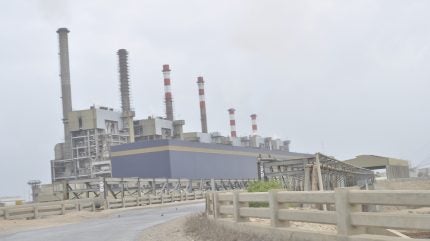
Qatar’s Al-Thani Group has signalled its intent to sell its 49% share in Pakistan’s Port Qasim coal-fired power plant, reported Business Recorder, citing government sources.
This comes as the country’s foreign direct investment (FDI) woes increase and multinational companies exit due to policy and economic challenges.

Discover B2B Marketing That Performs
Combine business intelligence and editorial excellence to reach engaged professionals across 36 leading media platforms.
The 1.32GW facility located east of Karachi was developed as part of the China–Pakistan Economic Corridor (CPEC) by Al-Mirqab Capital and Power Construction Corporation of China.
Al-Mirqab Capital, which serves as the investment office for former Qatari Prime Minister Sheikh Hamad Bin Jassim Bin Jaber Al Thani and is based in Doha, Qatar, oversees the Al-Thani family’s international holdings in sectors such as public equities, real estate and private assets.
The original project cost stood at $2.09bn, with the Al-Thani Group contributing more than $1bn (QR3.64bn).
According to the report, like many independent power producers in Pakistan, the plant’s management has reported difficulties due to delayed payments from the Central Power Purchasing Agency–Guaranteed (CPPA-G).

US Tariffs are shifting - will you react or anticipate?
Don’t let policy changes catch you off guard. Stay proactive with real-time data and expert analysis.
By GlobalDataThese delays are largely attributed to Pakistan’s ongoing foreign exchange constraints.
Currently, Chinese companies operating under the CPEC are also seeking settlement of overdue payments.
Recently, the management at Port Qasim Electric Power Company (PQEPC) reportedly warned government officials that failure by CPPA-G to fulfil financial commitments under the power purchase agreement could lead to operational suspensions.
According to Business Recorder, in 2024, the former Qatari prime minister wrote to Pakistan Prime Minister Shehbaz Sharif seeking payment of $450m owed to PQEPC.
Despite intervention at high levels, the dues remain unsettled.
Al-Mirqab Capital is said to have now formally communicated to senior officials in Islamabad its intention to divest from the project.
According to officials, the ‘Notice of Intent to Divest from the Port Qasim Power Plant’ has been delivered through the appropriate channels.
Pakistan’s investment environment has worsened significantly. In the past four years, nine multinational companies have withdrawn or divested their operations. Four were manufacturers – three pharmaceutical companies (Sanofi‑Aventis, Pfizer and Eli Lilly) and one consumer goods operator (Procter & Gamble). The other withdrawals came from the services sector and included Shell, Total, Telenor and Uber/Careem, reported Business Recorder.





